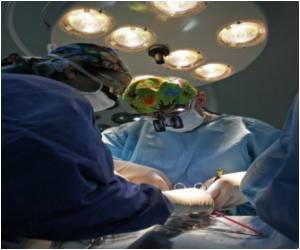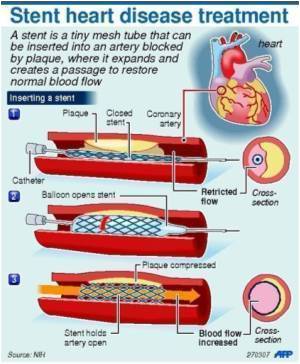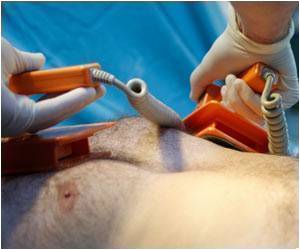In mice, triglyceride lipid emulsions rich in an omega-3 fatty acid injected within a few hours of an ischemic stroke can decrease the amount of damaged brain tissue by 50 percent or more.

The results suggest that the emulsions may be able to reduce some of the long-term neurological and behavioral problems seen in human survivors of neonatal stroke and possibly of adult stroke, as well. The findings were published today in the journal PLoS One.
Currently, clot-busting tPA (recombinant tissue-type plasminogen activator) is the only treatment shown to improve recovery from ischemic stroke. If administered soon after stroke onset, the drug can restore blood flow to the brain but may not prevent injured, but potentially salvageable, neurons from dying.
Drugs with neuroprotective qualities that can prevent the death of brain cells damaged by stroke are needed, but even after 30 years of research and more than 1000 agents tested in animals, no neuroprotectant has been found effective in people.
Omega-3 fatty acids may have more potential as neuroprotectants because they affect multiple biochemical processes in the brain that are disturbed by stroke, said the study's senior author, Richard Deckelbaum, MD, director of the Institute of Human Nutrition at Columbia's College of Physicians & Surgeons. "The findings also may be applicable to other causes of ischemic brain injury in newborns and adults," added co-investigator Vadim S. Ten, MD, PhD, an associate professor of pediatrics from the Department of Pediatrics at Columbia.
The effects of the omega-3 fatty acids include increasing the production of natural neuroprotectants in the brain, reducing inflammation and cell death, and activating genes that may protect brain cells. Omega-3 fatty acids also markedly reduce the release of harmful oxidants into the brain after stroke. "In most clinical trials in the past, the compounds tested affected only one pathway. Omega-3 fatty acids, in contrast, are very bioactive molecules that target multiple mechanisms involved in brain death after stroke," Dr. Deckelbaum said.
Advertisement
Studies are currently under way to test the emulsion in older mice and in mice with different types of stroke. The researchers are also conducting additional studies to identify more precisely how the omega-3 emulsion works and to optimize the emulsion in order to improve functional recovery after stroke.
Advertisement
Source-Eurekalert















